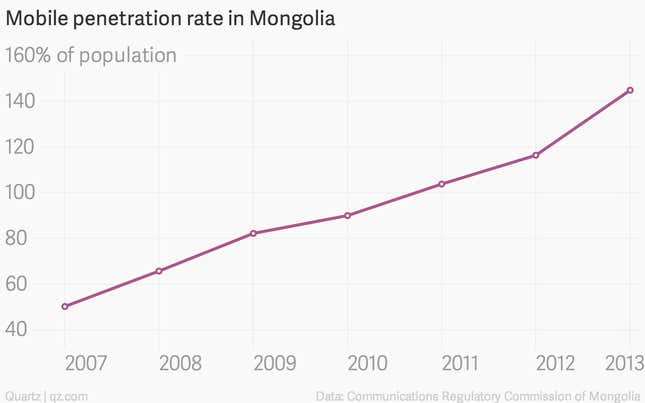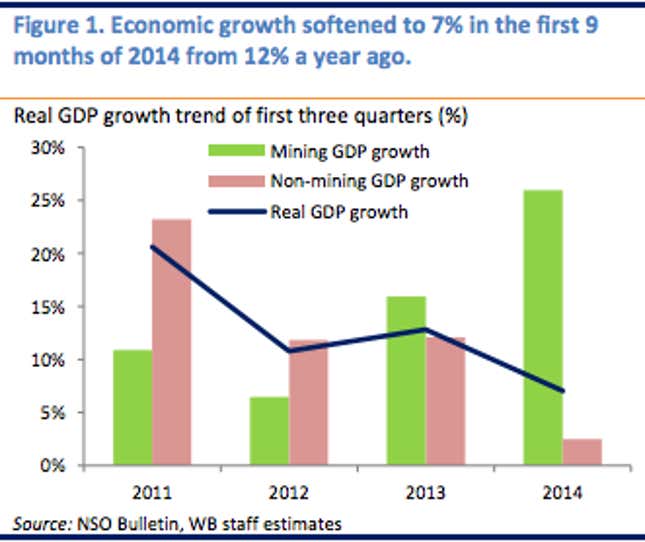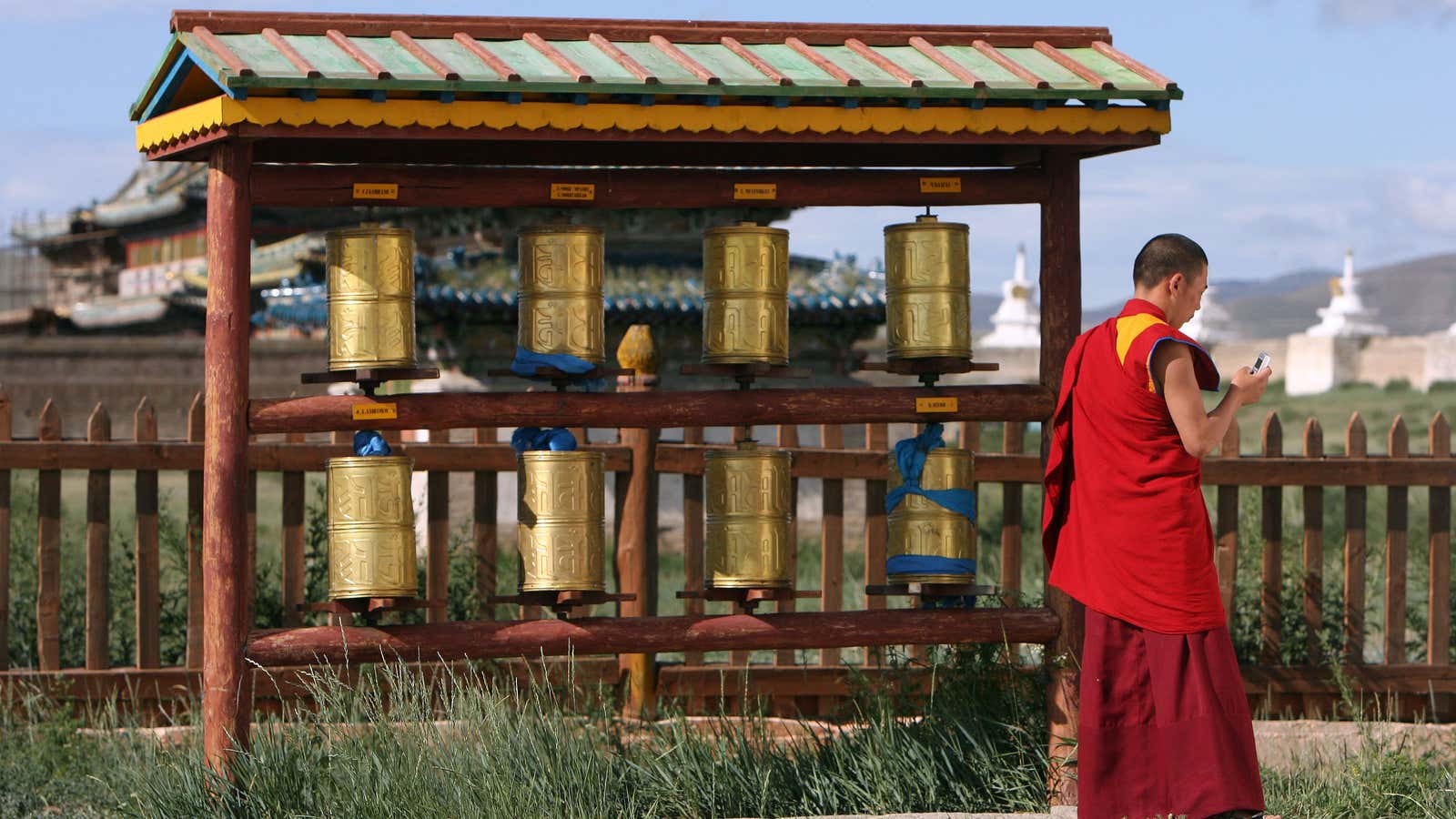Mongolians received a text message last week. It asked them to reply to vote for one of two futures for the country: budget cuts and economic austerity, or the controversial expansion of copper and gold mines, which could bring in billions of dollars in foreign investment.
More accurately, a small minority of Mongolians voted for mining investment—only 10% of the texts the government sent received a reply, with mines narrowly edging out austerity by 56% to 44% of texts received. The result of the vote was non-binding, but was hailed by the prime minister today as justification for pushing ahead with more mining investment. (If you read Mongolian, here is the statement announcing the vote result and subsequent draft legislation.)
This is how the vote worked. Over the weekend, a text message was sent to about 3.3 million mobile numbers. There are only 2.8 million people in Mongolia—like many other countries, lots of mobile users maintain more than one account. Mobile subscriptions cover around 150% of Mongolia’s population, according to the latest official figures:

For a vast, sparsely populated country like Mongolia, a mobile vote may be the most efficient way to reach people. But there are drawbacks, principally that the system allowed one vote per phone number. Anyone with more than one number registered in the country—whether citizen, resident, or foreign mine worker—could reply to the text.
In the four days of the poll, 302,008 valid votes were received, a very small percentage of Mongolia’s population. For some, it looked less like a proper poll and more like a vote on a TV talent show (paywall), albeit with much higher stakes.
The poll, flimsy though it was, will give some support to the government to break an impasse at the massive Oyu Tolgoi mine. Cost overruns, tax disputes and other snags have stalled development of the project by Rio Tinto, the mine’s majority owner. Fears over environmental damage have added to the complications.

Mongolia was one of the world’s fastest-growing economies in recent years, but it is now slowing thanks to plunging prices for commodities and an economic slowdown in neighboring China. A reduction in foreign investment would make it hard for the government to meet its domestic spending pledges.
More importantly, commodity windfalls have propelled other mineral-rich countries into cycles of rising inequality, wasteful spending and economic imbalances—the so-called “resource curse.” The choices ahead are tough and, arguably, more complex than a text message can convey.
